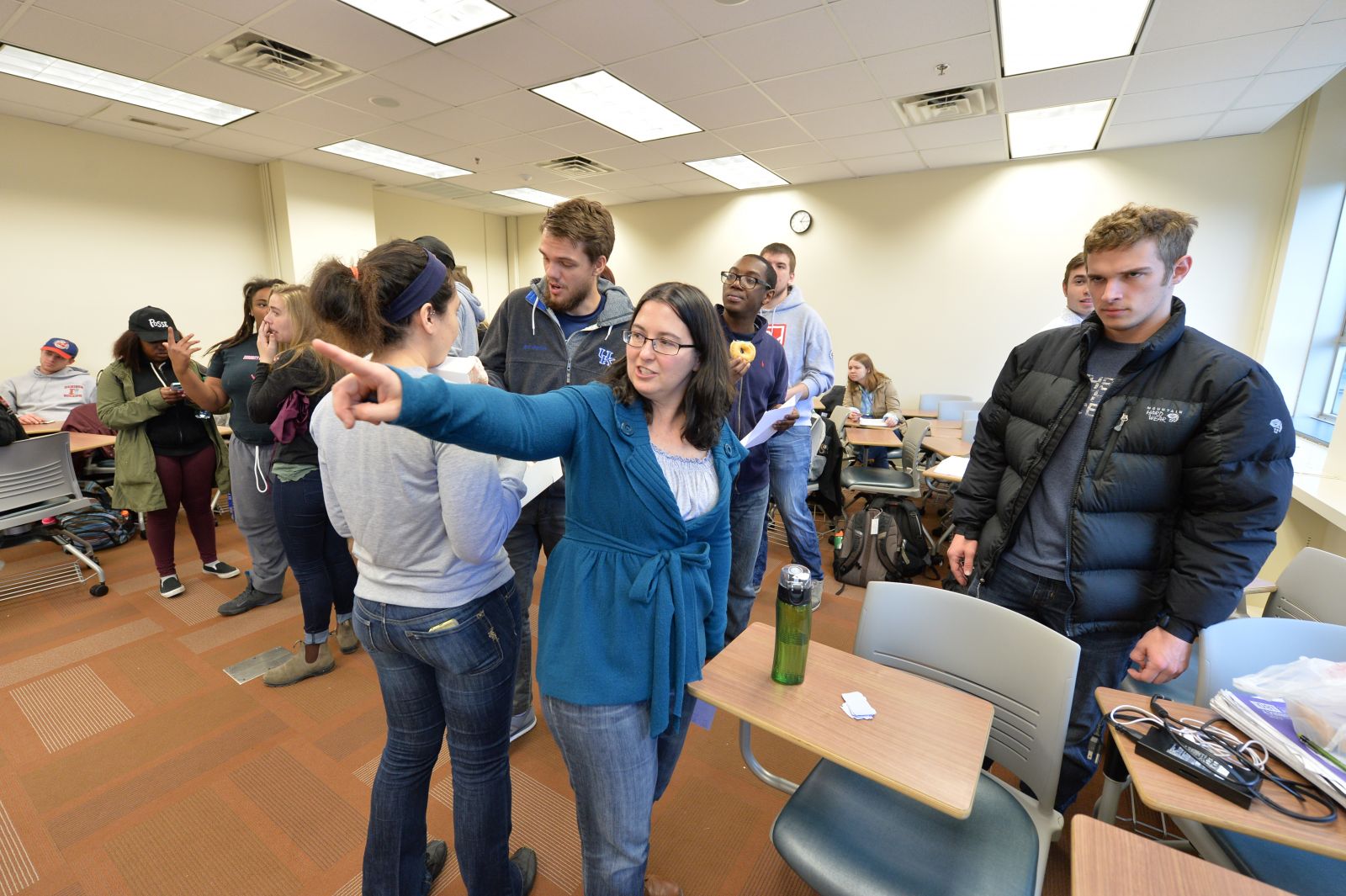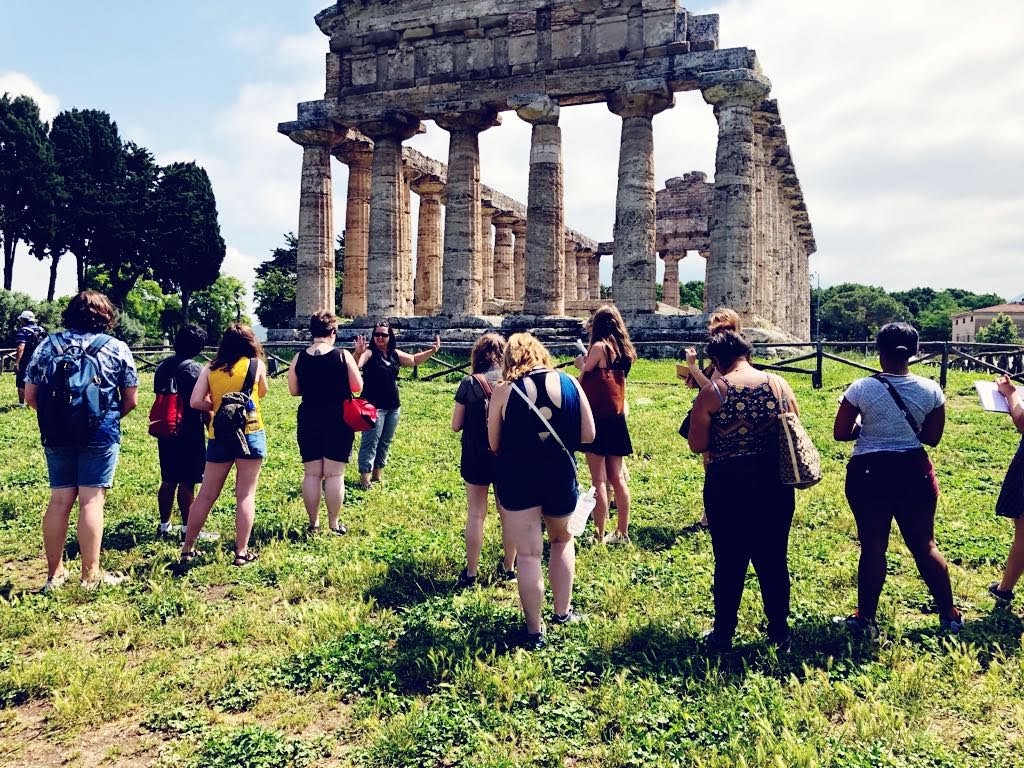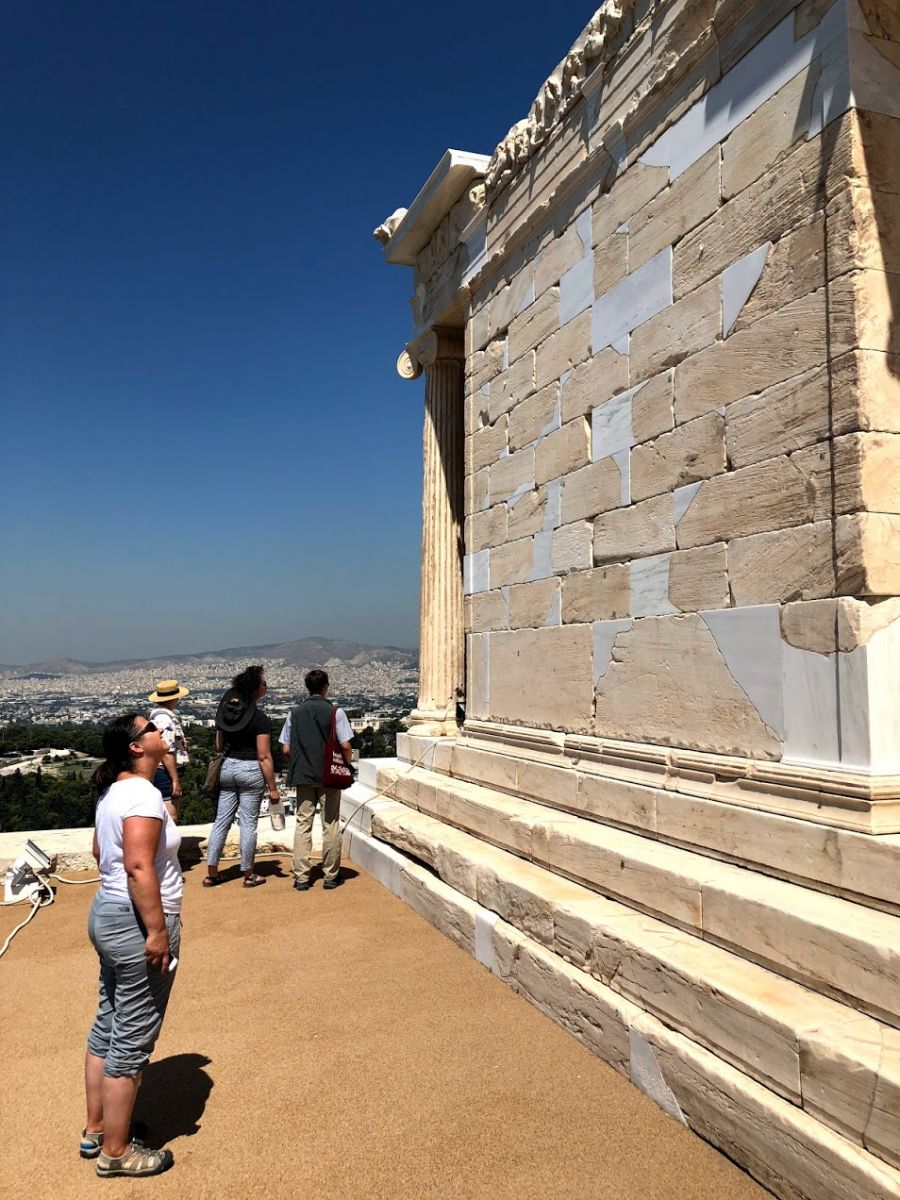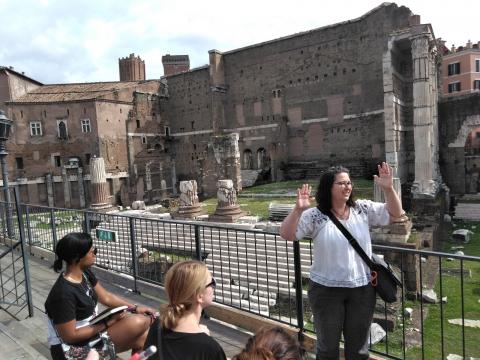Ayelet Haimson Lushkov
September 13, 2018
A Day in the Life of a Classicist is a monthly column on the SCS blog written by Prof. Ayelet Haimson Lushkov celebrating the working lives of classicists. If you’d like to share your day, let us know here.
Rebecca Futo Kennedy is Associate Professor of Classics and Administrative Director, Denison Museum
Since being tenured in 2015, I have actually held two separate positions at my university - professor of Classics and director of the Denison Museum. As a result, my time is now split between the department and the museum (and, if you have to ask - no, I had no experience running a museum before they asked me to do it, and, no, I don’t intend to do it forever; I’d like to go back to full-time teaching someday). So, my average day(s) look something like this:

Teaching days: I get up to make sure that my daughter has not slept past her alarm (she never does) and get ready, go to my department office and have a tea and maybe a small snack. I usually use the morning to prep for the day for classes and then have my lunch, teach and hold office hours in the afternoons. I usually leave the office around 4:30 so I can get my daughter to whatever sport she is in season for. Luckily, my mom recently moved to our area, so I can sometimes ask her take care of a drop off. I try to stack all my teaching on two days per week, which is usually doable since I now only teach three courses per year. I usually reserve a third day for research and writing.
Museum Days: Same morning routine, except I head into the museum instead of the department - and into chaos. I share an office with two professional staff and as many as 6-8 of our student interns on any given day. I typically spend two days per week in the museum from 8:30-4:30. My time is usually spent dealing with budget requests, working on exhibition prep and planning with the staff, troubleshooting construction issues (our building is under construction right now), editing and commenting on student work, and otherwise just trying to help out the staff in the day to day management of the collection and our space. When things are quiet, I can put my headphones on and write or read for my research.
Having said that, every day is really a non-average day when you have two jobs and a kid in sports. The hardest ones are during student advising periods. I have around 25 advisees at any given time and need to meet with them individually between weeks 6-9 of the semester and this usually means I rearranging my normal schedule to accommodate 20-25 30-minute meetings. I schedule grading times one or two nights per week after I drop my daughter off at fencing practice. I usually go to a local pub and grade while I have my dinner and a glass of wine. I have my own ‘reserved’ seat and everyone knows my name. It’s like Cheers.

I can (fortunately!) actually write pretty much anywhere if I have my headphones and music. I listen to movie soundtracks mostly - Lord of the Rings, Harry Potter, Pride and Prejudice, and the Twilight movie scores are some favorites (I like the composers). For whatever reason, I am pretty good at tuning the world out with music (a well-developed accommodation to my ADD). But I still prefer the office or museum space. I can do a coffee shop sometimes. I have a harder time, however, at home, where there is an abundance of silence and too many things that need doing. Sometimes I take notes by hand, sometimes I type - usually after I’ve had some time to work through at least the beginnings of an idea.
I really love the type of writing flow where I can revise the previous day’s writing and then add new material. I think revision should be built into any writing process and not something that gets tagged on at the end when everything is mostly done. So, to me, the best writing days are the ones where I start by reading the previous 2-3 pages and build up to the new material. Some days, this produces mostly revising and not much new, but on other days, it can stimulate up to 8-10 new pages of text. Those are the best, most enjoyable days.
I tend to not work evenings unless I am up against a deadline or it is one of my regular grading nights. I take Saturdays off entirely and work at least half a day Sundays. When I want to acknowledge that I’ve reached a wall and won’t be able to work efficiently, I change into my sweatpants and play Candy Crush or turn on the TV. During the work day, Chai lattes, short walks, and occasional scrolling through Twitter and Facebook, provide scheduled distractions so I use my scheduled work time efficiently.
We all work in ways that best suit our circumstances and needs, and there no right way to work. I wish mostly that my fellow classicists knew that we should allow for this variation in ourselves, our colleagues and students and that it’s ok if we don’t work 14 hour days, especially if we can be more effective in 6-8. The worst thing we can do is make others and ourselves feel guilt or shame because we don't work the same way as others do. Those feelings can take away enjoyment and make us less efficient and productive with the time we do give our work.

These days, I actually enjoy most of what I do every day. I’m very lucky in that. I love teaching, I love spending time with my research, and I enjoy the work at the museum, even though we have no antiquities collection. I’m a generally curious person and every day I get to go learn something new in any of the environments I find myself in. So, that’s probably my motivation. But for seven years, I lived separated from my partner (also a Classicist!), and it has fundamentally changed the ebb and flow of my life to be able to live in the same state as my spouse. It makes all the difficulties of juggling teaching with administration and research and parenting doable. Not everyone in academia has this luxury of being able to live with their partner and that is truly unfortunate.
If you had asked me 3 years ago what my daily life was like, I would not have been able to say I enjoyed the work as much. I am only able to enjoy it now and still be the parent I want to be thanks to having my spouse around and my now-retired parents as a support network. It’s far too rare that academics get this. The nature of our job market and the traditional attitudes towards spousal hiring make isolation more the norm and makes any work-life balance a challenge. I hope that as more people talk about what their daily life is like, we begin as a field to recognize that we need to all be more flexible with our colleagues, with our expectation in hiring, and push back on old ways of thinking about academic jobs, who should be in them, and how they should be done.
Header image: Rebecca Futo Kennedy teaching in Rome. Photo courtesy of Rebecca Futo Kennedy.
Authors


